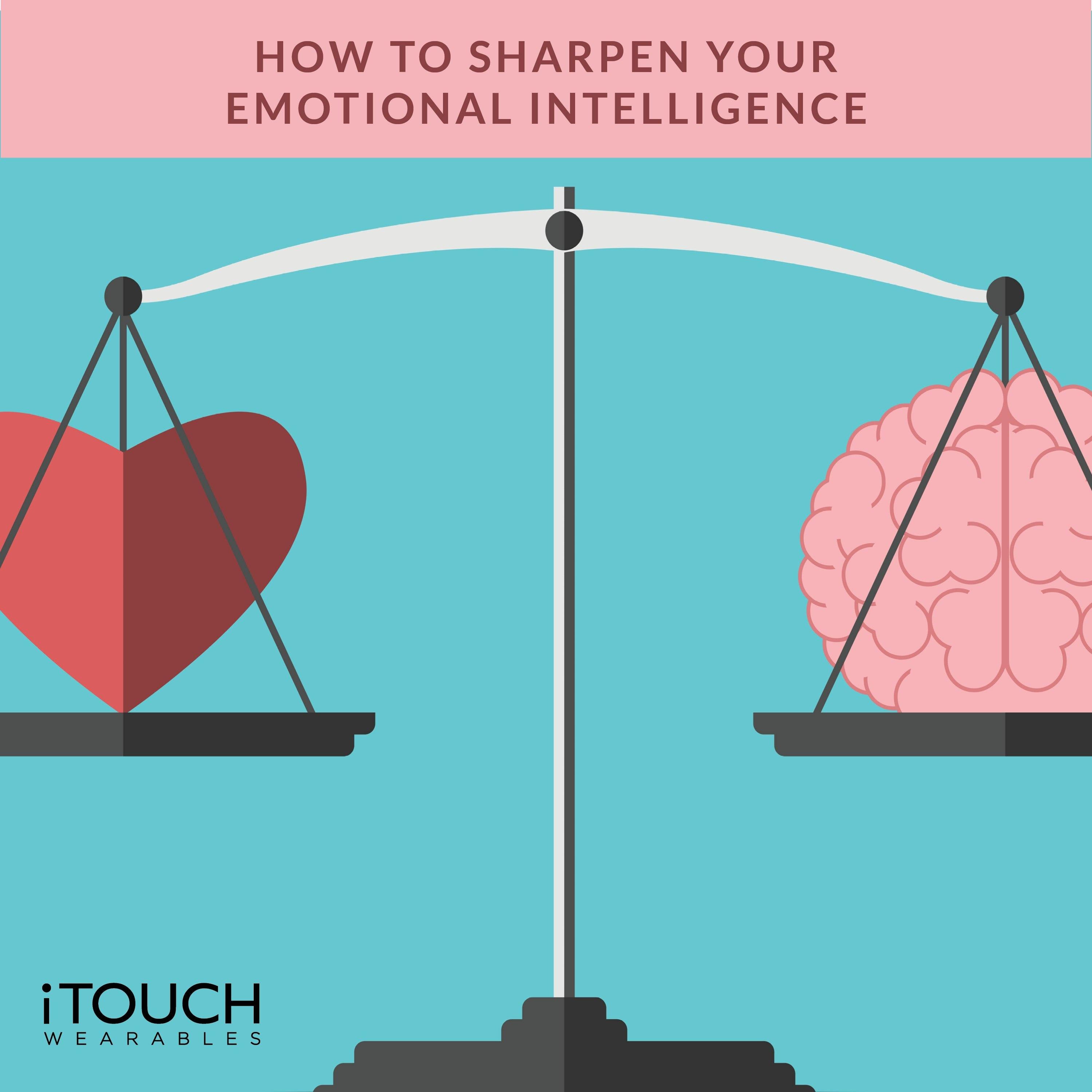
How To Sharpen Your Emotional Intelligence
When it comes to happiness and success in life, emotional intelligence is just as crucial in understanding when compared to that of one's intellectual ability.
Emotional intelligence is the critical ability in understanding, using, and managing one's emotions in positive ways. This can be done when trying to relieve stress, communicate effectively, empathize with others, overcome challenges, and settle or defuse conflict. With emotional intelligence, you can build stronger relationships, succeed, whether at school and work, and achieve your career and personal goals. Furthermore, it can also help you connect with your feelings, turn intention into action, and make informed decisions - especially when it is about what matters to you most.
Commonly, emotional intelligence is commonly defined by four attributes:
- Self-management - This is when one is able to control impulsive feelings and behaviors, manage their emotions in healthy ways, be innovative and take lead, follow through on commitments, and adapt to changes in their environments.
- Self-awareness – This is the ability to recognize your own emotions and how these emotions affect certain behaviors or thoughts - these can be anything from certain triggers you have to even our strengths and weaknesses.
- Social awareness – We all have empathy and we all understand how to pick up on one's emotions and feelings. Even more so, we can understand one's needs and concerns as well. We are also able to pick up on emotional cues, feel comfortable socially, and recognize the power dynamics in a group or organization.
- Relationship management – You know how to develop and maintain good relationships, communicate clearly, inspire and influence others, work well in a team, and manage conflict.
If you are curious has to why Emotional Intelligence is important, and furthermore, how to continue to increase it, here is a guide full of easy tips and tricks to build your Emotional Intelligence.
Why Is Emotional Intelligence Important?

As you may know, your intellectual ability isn’t enough on its own to achieve success in life. While your IQ can help you, for example, get into college, it is your EQ that will help you manage the stress and emotions when it comes to keeping up with work, exams, and even your social life. IQ and EQ work together in harmony and are most effective when they build off one another.
This is why your emotional intelligence can affect you in your life in places like:
- Your Work Performance: A high emotional intelligence can help you navigate the social dynamics or complications of the workplace, lead and motivate others, and excel in your career.
- Your Physical Health: You are probably not managing your stress if you do not know how to handle your emotions as well. This can lead to a series of rather serious health problems, as uncontrolled stress raises blood pressure, suppresses the immune system, increases the risk of heart attacks and strokes, contributes to infertility, and speeds up the aging process.
- Your Mental Health: Uncontrolled emotions and stress can also impact your mental health, making you vulnerable to anxiety and depression. If you cannot understand how to handle your emotions, this may also create issues when it comes to forming relationships and bonds.
How To Improve Your Emotional Intelligence

When it comes to increasing your emotional intelligence, here are four key ways that we discovered have worked:
1. Self-management
In order for you to engage your EQ, you must be able use your emotions in order to make constructive decisions regarding your behavior. If you are overly stressed, you may find yourself often losing control of your emotions and the ability to act appropriately. Emotions are important pieces of information that tell you about yourself and others, when faced with an issue that may seem out of your own hands, we can become overwhelmed and lose control of ourselves.
With the ability to manage stress, mindfulness, and stay emotionally present, you can learn to receive upsetting information without it taking control of the situation or your life. You’ll find yourself being able to handle situations with more control over your impulses and respond in more positive ways.
2. Self-Awareness
Managing stress is only the starting point when it comes to understanding and building your emotional intelligence. Your ability to manage core feelings such as anger, sadness, fear, and joy often depends on the quality, and consistency of your early life emotional experiences, which psychology and the study of attachment often link to one's current emotional responses. Being able to connect to your emotions or even just having a moment-to-moment connection with your changing emotional experience, is the key to understanding how emotion influences your thoughts and actions.
In order to build emotional intelligence, you must reconnect with that of your core emotions - learn to accept them, embrace the vulnerability or even chaos that may be inside of it, and become comfortable with them. The practice of mindfulness is just one key element in this journey. Mindfulness helps shift your senses and mind with thought toward an appreciation of the moment, your physical and emotional sensations, and brings a larger perspective on life. Mindfulness calms and grounds you, making you more self-aware in the process. In doing so, you can reconnect with your emotional awareness and better become adapted to understand just exactly how to react to certain emotions and feelings.
3. Social Awareness
Social awareness acts as a tool to help you recognize and interpret nonverbal cues others are constantly using to communicate with you. These cues let you know how others are really feeling - getting an idea of how their emotional state is changing from moment to moment. When groups of people send out similar nonverbal cues, you’re able to read and understand the roles within the group as well as the shared emotional experiences of the group. In short, you’re empathetic and socially comfortable.
4. Relationship Management
Being able to work well with others is a process that begins with emotional awareness and your ability to recognize and understand what other people are experiencing. Once emotional awareness is in play, you can effectively develop additional social/emotional skills that will make your relationships more effective, fruitful, and fulfilling.
The Bottom-Line

These skills and practices can be easily utilized by everyone - and while high emotional intelligence skills may come more easily to naturally empathetic people, anyone can develop them. Less empathetic people just have to practice being more self-aware and conscious of how they interact with others. By utilizing these steps, you'll be well on your way to an increase in your emotional intelligence level!
Share with us how you can improve your emotional intelligence by tagging us on Instagram @itouchwearables and Facebook @itouchwearables. Also, be sure to check out our new articles published daily and the latest styles on iTouchWearables.com!
-Patrick


